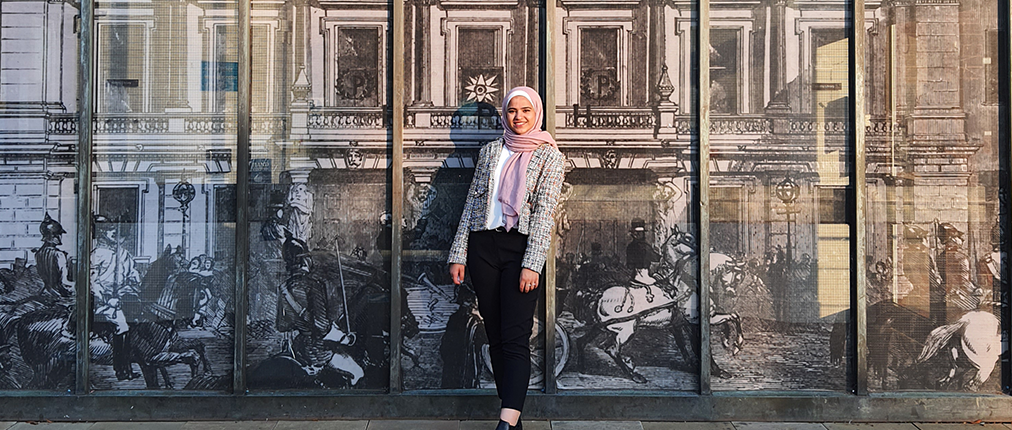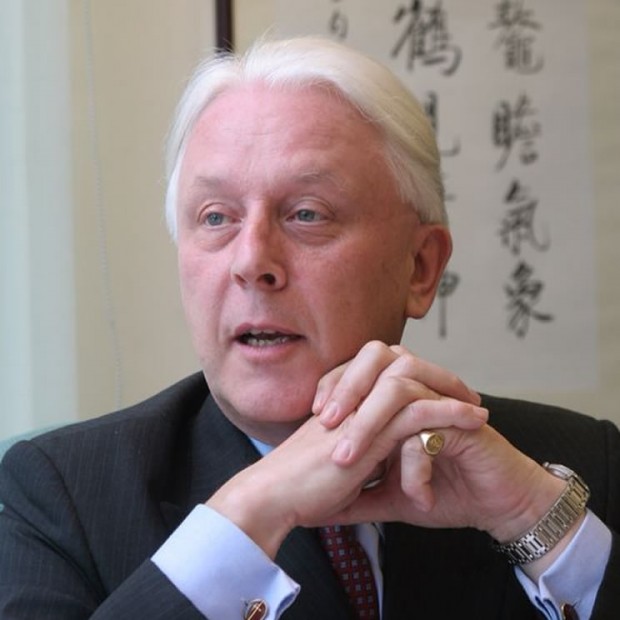Hartley News Online Your alumni and supporter magazine
Analle Abuammar (MSc Artificial Intelligence, 2020) was a finalist in the British Council Study UK Awards in Jordan, in the Business and Innovation category. After the finals, Analle spoke to us about her exciting work in artificial intelligence (AI) for educational purposes, and what could be on the horizon in this ever-advancing area of technology.
Since you completed your MSc you’ve been working as the Senior Machine Learning Researcher and Engineer at Knowledge AI. Could you tell us a little about your work on AI for educational purposes?
I was the technical lead for a data science team of six members at Knowledge AI. I helped to guide them in how to approach and research an AI problem. We worked on integrating AI with an online educational platform for students, which identifies areas of weakness in each student’s cognitive and behavioural skills. The platform then attempts to use tailored solutions to support those areas of weakness and enhance the relevant skills, rather than relying solely on the student’s grades to evaluate their progress.
What do you think are the big benefits that AI can bring to an educational setting? Where might the technology go in the future?
The main point of artificial intelligence in education should be to improve learning and teaching processes. Some students may have particular skills or a learning style that differs from other student. For example, some people are visual learners, while others process things in a more verbal or auditory way.
Using AI can help to personalise the learning experience. So, based on a student’s previous projects, exams or the teaching methods they responded best to, we could recommend the best approaches to fit that student’s abilities.
A lot of your work has focused on integrating AI into Arabic language technologies. What are the particular challenges with this kind of development work?
The challenges associated with Arabic natural language processing (NLP) occur because it is very morphologically rich, highly contextual, and semantically complex.
However, when it comes to developing technologies that serve users from all around the Arab world, there is a huge variation between the different dialects – both from dialect to dialect and when compared with the Modern Standard Arabic that can be found in books and other information sources.
This variation complicates the data collection and labelling phases, in addition to the need to build systems that only serve one dialect at a time.
How did your Masters degree help you to build your career? What new skills and experiences did it give you?
Studying at Southampton enhanced my skills and knowledge and developed my understanding of the mathematical background that underpins machine learning. It also encouraged my critical thinking, changed how I perceive information and tackle challenges.
It made me a more proactive person, a better researcher, and gave me the power to lead a data science team of junior staff and guide them to enter the world of Artificial Intelligence.
What are your favourite memories of Southampton and your time at the University?
I have always loved walking around the city and usually I ended up sitting on the port and enjoying time with my friends.
I loved attending all the events that were held by the University, especially during Induction Week.
I remember considering Hartley Library our second home: one day we stayed until sunrise. It was tiring but it was one of those days to remember!
You have already achieved so much and been recognised as a finalist for the British Council Awards, Jordan. What do you hope to do next/ what are your hopes for your career?
Wherever or whatever I do, I want to transfer the knowledge and skills that I have gained in AI. Also, I want to apply AI in a beneficial way.
Looking back at the different stages of my education and career, I was fortunate enough to have people I admire around me that were willing to teach and supervise me. That’s something I really appreciate. Since having that realisation, I want to transfer what I have learnt (and what I will go on to learn!) to others – I’d like to be a mentor for people.
Artificial Intelligence is one of the newest emerging topics in our region and is has the potential to benefit so many different areas of our life. I’m excited to see what’s next!



